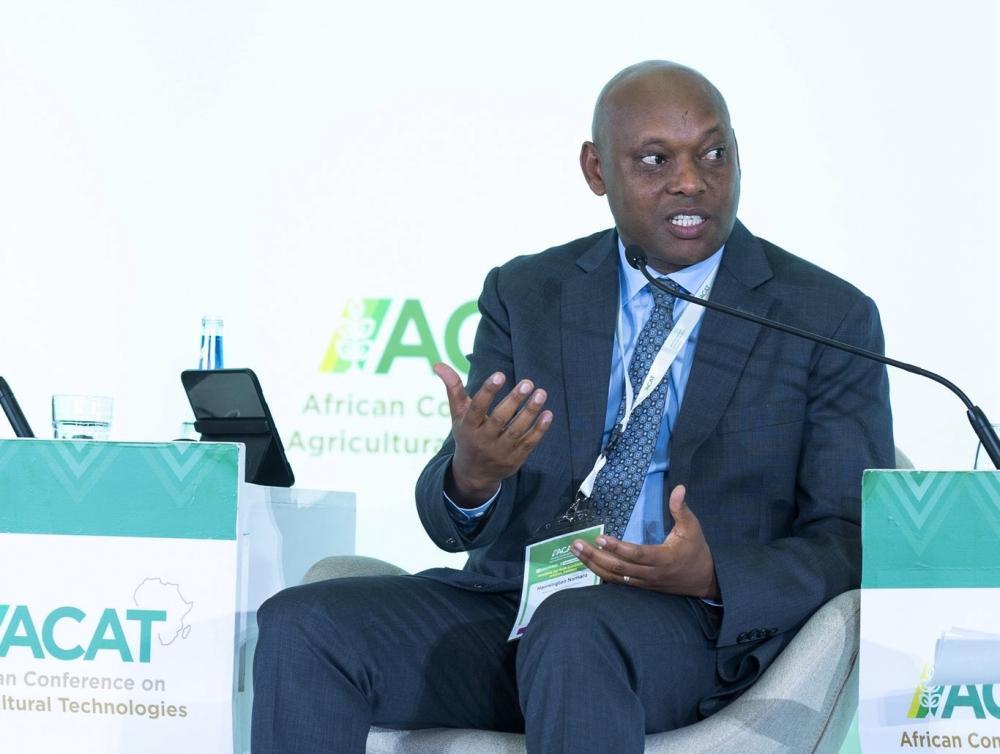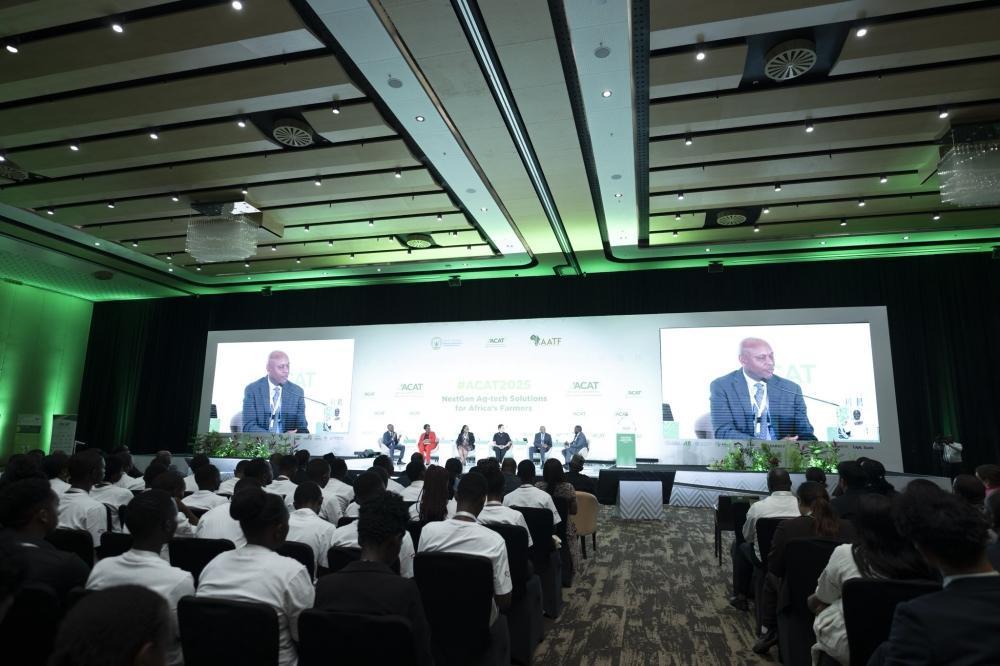Africa-Press – Rwanda. Equity Bank Rwanda has committed to allocating a minimum of 30 per cent of its loan portfolio to agriculture, a move designed not only to inject capital into the sector, but to catalyse a full ecosystem transformation.
The announcement was made on Tuesday, June 10, by Hannington Namara, Managing Director of Equity Bank Rwanda and Chairman of the Rwanda Bankers Association, during a high-level panel at the African Conference on Agricultural Technologies (ACAT 2025), held in Kigali from June 9 to 12.
He said, “The problem isn’t the absence of money. It’s the absence of a system. Agriculture is not too risky to finance. It’s too fragmented to finance using traditional models. The challenge isn’t ‘if we finance,’ it’s ‘how we finance’ — and that’s what we are solving”
Namara called on the entire financial sector to rethink how Africa’s most resilient sector, agriculture is financed.
Hannington Namara, Managing Director of Equity Bank Rwanda and Chairman of the Rwanda Bankers Association, during a high-level panel at the African Conference on Agricultural Technologies on Tuesday, June 10.
By pledging 30 per cent of its loan book to agriculture, the bank is doing more than merely injecting capital, it is setting a precedent and encouraging other financial institutions to match this level of ambition with concrete action.
Hannington Namara, Managing Director of Equity Bank Rwanda and Chairman of the Rwanda Bankers Association speaks on a panel discussion.
“We’re not short on capital. What we need are better channels. Clearer structures. Risk-sharing mechanisms. When those exist, the capital will flow not just from Equity Bank, but from across the banking industry,” Namara emphasised.
He further noted that this is not a ceiling, it’s a floor. A starting point.
Addressing common perceptions about the risks involved in agricultural financing, Namara challenged traditional beliefs. “Like any business, agriculture has risks. But we don’t avoid risk, we design around it. Through satellite tech, AI-driven scoring, weather data, and new insurance models, we can de-risk the sector intelligently,” he explained.
The discussion then shifted towards ecosystem finance—a model where each stakeholder plays an important role: banks provide capital, innovators introduce precision technologies, farmers contribute their expertise, governments offer policy support, and development partners provide guarantees and capacity building.
Namara’s remarks positioned Rwanda not just as a beneficiary of financial innovation but as a testing ground for scalable African models.
“Agriculture doesn’t need sympathy. It needs systems. And under our leadership as a financial sector, we’re ready to build those systems, with courage, precision, and partnership,” he said.
For More News And Analysis About Rwanda Follow Africa-Press








